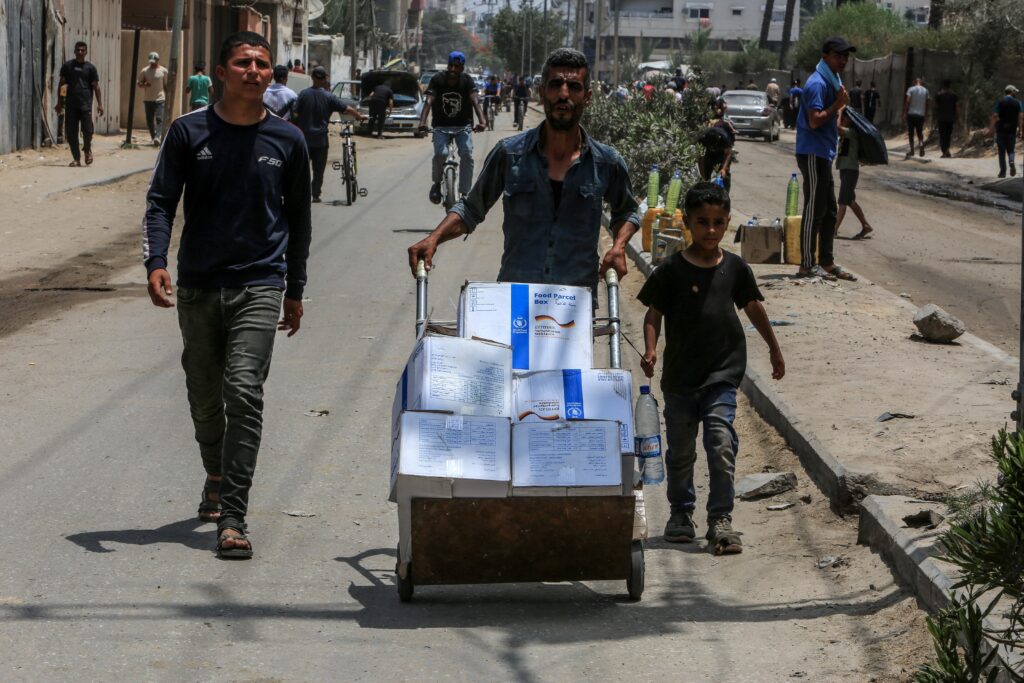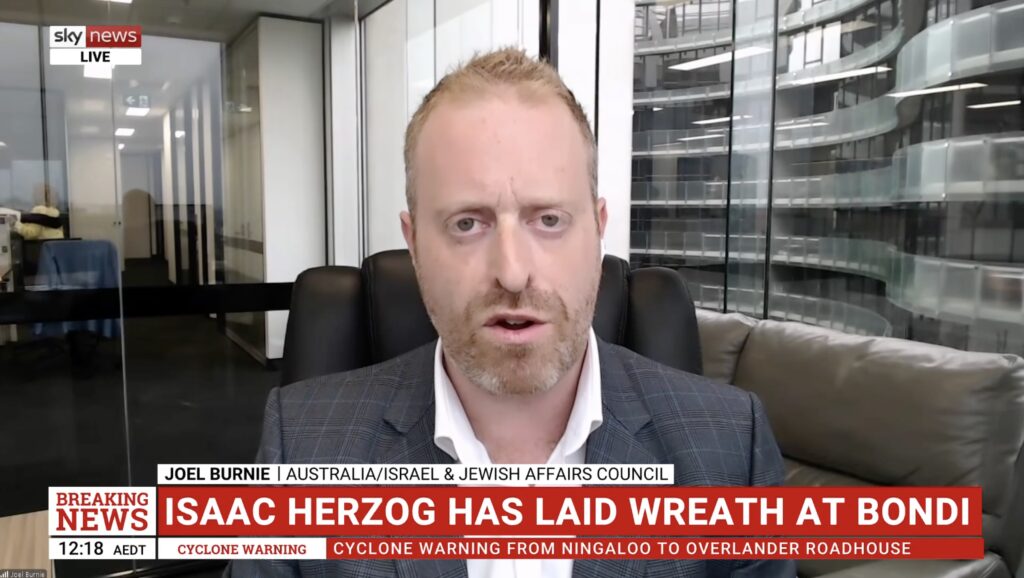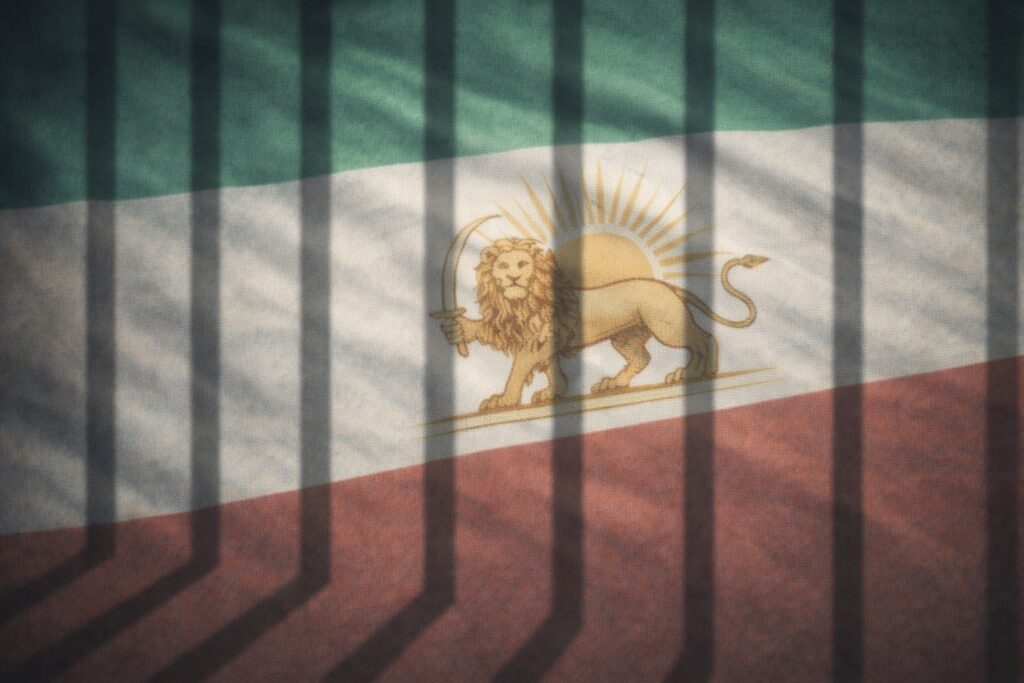UPDATES
Mideast unrest spreads – Libya, Iran, Bahrain and beyond
February 21, 2011
Update from AIJAC
February 21, 2011
Number 02/11 #07
The Middle East unrest that started in Tunisia and then forced Mubarak out in Egypt continues to spread – Libya is the latest hotspot, while serious unrest continues to afflict Iran and Bahrain, as well as other states including Yemen, Algeria, Morocco, etc. This Update focuses on analysis of these hotspots and the implications of the popular unrest and increasing violence.
First up is veteran British commentator Con Coughlin, who points out that radical states which recently fanned the flame of unrest against their more pro-Western neighbours are also now feeling the heat. He points out that Iran’s rulers will be strongly embarrassed by the resurgence of the opposition Green Movement, which they had defeated last year, but will be even more worried by signs of a split within the Revolutionary Guards. Meanwhile, he accurately predicted the unrest is likely to prompt a very brutal response in Libya, as has reportedly been the case. He concludes that the West will have a challenge to find ways to encourage regime change in places like Iran and Libya, but channel the unrest in places like Bahrain into controlled democratisation. To read all that he has to say, CLICK HERE. More on the alleged letter from Iranian Revolutionary Guards leaders vowing to refuse to fire on protestors here. Also on Iran, the government is now vowing to try Green Movement leaders Mir Hossein Mousavi and Mehdi Karroubi for sedition, a capital offence. Hezbollah fighters are reportedly helping the regime repress the protests. More on the state of the Green movement from Iranian exile writer Amir Taheri.
Next up, Mohammed Aslam, a British PhD candidate specialising in Middle East political violence, points out that the idea of serious unrest in Libya – where the eccentric Moammar Gaddafi has been in power for 42 years – looked fanciful even after the Tunisian and Egyptian governments fell. But now, he says, the regime looks like it may be panicking as reports come through that successes by protestors in Libya’s long-restless east have now spread to the capital. He predicts that the traditional Muslim mourning period of 40 days for each of those killed in the violence will guarantee that the unrest will continue at least that long. For Aslam’s view as totalitarian Libya seems to be coming apart, CLICK HERE. Seif al-Islam Gaddafi, son of the dictator, has gone on television to warn of civil war and a willingness to “fight to the last bullet” against unrest he blamed on foreign plots. Middle East freelancer Michael Totten says if Gaddafi is not safe from unrest, no one is. Elliot Abrams says the Libyan regime is likely finished. Finally, video of obviously bloody and somewhat confusing events in Libya are here, here, here, here and here.
Finally, noted Middle East expert Michael Rubin looks at the ongoing unrest in tiny but strategic Bahrain and Western policy responses. He particularly examines long-standing Iranian claims on Bahrain and desire to reclaim the small majority Shi’ite municipality, as well as Saudi determination to prevent this happening. He says the US policy choice for Bahrain, and much of the rest of the Gulf states, is to encourage constitutionalism, without removing the royal families, which help encourage moderation and “personify unique nationalism.” For his complete argument, CLICK HERE. Some bloody video of protesters being shot in Bahrain is here. More on the Saudi strategic concerns over Bahrain comes from Washington Institute scholar Simon Henderson, and more on the importance of the US military base there is here.
Readers may also be interested in:
- Ben Cohen asks why the word “apartheid” is never used to describe the situation in Bahrain (or other Arab states) but is used in far less appropriate situations.
- Editor and academic Marty Peretz comments on how communications is now threatening dictators, while AIJAC’s Daniel Meyerowitz-Katz writes that the importance of Twitter and Facebook in Egypt in the current unrest should not be exaggerated.
- Barry Rubin notes that the return of Muslim Brotherhood spiritual leader Sheikh Yusuf al-Qaradawi to Egypt creates a danger that he could be the Egyptian Khomeini. At his return rally, he called for prayers for the conquest of Jerusalem. At the same rally, Google employee Wael Ghonim, the internet-savvy public face of the Egyptian protest movement in the West, was refused permission to speak.
- Some differing views on the Egyptian Brotherhood from former AIJAC analyst Daniel Mandel, British-based former Egyptian dissident Maajid Nawaz and Dutch Somali Muslim reformer Ayaan Hirsi Ali.
- Following up on the sexual assault in Tahrir square of CBS reporter Lara Logan, other female journalists come forward with stories of less severe sexual harassment at the same public celebrations – see here and here. Al-Jazeera is reportedly refusing to cover the sexual assault story. Israeli columnist Caroline Glick argues the international media is refusing to look at the larger social attitudes behind these attacks.
- More on the role of woman in the Egyptian protests, including some interviews with activists, is here.
- Controversially, Egypt’s military government is reportedly going to allow a two-ship Iranian military flotilla through the Suez canal.
- How the Arab revolutions help Turkey become a powerful regional player.
- The US vetoed a Palestinian-sponsored UN Security Council resolution on the weekend condemning as illegal all Israel settlements, but issued an explanation strongly condemning settlements. Interesting comments on this course of events from former official Elliot Abrams, Washington Institute head Robert Satloff, Eye on the UN head Anne Bayefsky, and law professor and blogger William Jacobson.
- AIJAC’s Dr. Colin Rubenstein joins the Australian debate about multiculturalism in this country.
The West looks to fan flames as Iran and Libya feel the heat from within
The mullahs scarcely imagined that the protests would appear on their doorstep, too.
By Con Coughlin
Telegraph (London) 17 Feb 2011
All of a sudden, the leaders of the Middle East’s rogue states appear to have lost their appetite for upholding the protests that have already accounted for the governments of Tunisia and Egypt.
In Iran, the government has ordered its supporters to stage nationwide demonstrations today to express their hatred for the opposition Green Movement, which earlier this week made a dramatic reappearance on the streets of Tehran to demand the overthrow of President Ahmadinejad’s regime.
That was hardly the response the clerics were hoping for when they extolled the protests in Egypt, comparing events with their own Islamic revolution in 1979. Ayatollah Ali Khamenei, the Supreme Leader, claimed earlier this month that the overthrow of Hosni Mubarak was part of the same “Islamic awakening” as the events of 32 years ago in Iran.
Once the crowds of demonstrators and chants of “Death to the Dictator” appeared on his own doorstep, he rapidly backtracked. Within a few hours, the order had gone out to the broadcast media to halt all coverage of unrest elsewhere in the Middle East. The next day, in a rowdy session of parliament, government MPs called for the execution of the Green Movement’s leaders, including Mir Hossein Mousavi, a former prime minister, and Mehdi Karroubi, the parliament’s former speaker. So much for free speech.
The re-emergence of the Green Movement is certainly a major embarrassment for the government. The mullahs no doubt assumed that their uncompromising response had silenced the protests that erupted in the wake of the disputed presidential election in 2009. Indeed, over the past few months, their executioners have been fully occupied with those accused of organising the protests, many of whom were sentenced to death on trumped-up charges such as drug-smuggling.
Iranian opposition groups estimate that the majority of the 89 people executed in January – the highest rate of any country in the world – were anti-government activists. They included Sahra Bahrami, a 46-year-old Dutch-Iranian woman, detained during the 2009 protests. She was hanged on bogus drug-smuggling charges, causing the Dutch government to freeze all ties with Iran.
The opposition has shown this week that it refuses to be cowed by the brutality of the regime’s response. But of more concern for Iran’s ruling elite will be fresh signs of a split within the ranks of the Republican Guards, the organisation formed specifically to protect the revolution.
In a letter to Mohammad Ali Jafari, the Guards’ hardline commander, a copy of which has been seen by The Daily Telegraph, senior officers seek reassurance that “we will not [have to] shoot nor beat our brothers seeking to express legitimate protest against the policies and conduct of their leaders”.
To date, the officers, who are based in Tehran, Isfahan, Qom and Tabriz, have received no official response from Mr Jafari, who has passed the letter to the Supreme Leader’s office. But any suggestion that the guardians of the Islamic Revolution might be unwilling to fight their own countrymen raises serious questions about the ability of both Mr Khamenei and Mr Ahmadinejad to survive a renewed bout of protests.
What ultimately sealed Mr Mubarak’s fate was the refusal of his military to fire on the protesters in Tahrir Square. It is not beyond the bounds of possibility that the same could happen in Iran.
Another rogue state reeling from the wave of protest is Libya, where Colonel Gaddafi has dominated the country for 41 years. This week’s demonstrations, in the eastern cities of al-Bayda and Benghazi, were sparked by the arrest of a human rights lawyer who was campaigning for the families of more than 1,000 prisoners killed by the security forces 15 years ago.
Saif al-Islam Gaddafi, the dictator’s second son and heir apparent, is said to have confided to his advisers that he is sympathetic to the protesters’ demands for wholesale reform of what he calls the “false politics” of the Arab world. But that is unlikely to be much help to those participating in today’s “Day of Anger” against the regime. Libya’s security forces are notorious for their brutality: when students at Benghazi University protested against Gaddafi’s rule in the 1980s, the revolt was ruthlessly crushed, and the ringleaders hanged from lamp-posts on the campus.
The challenge for Western governments now is to decide how best to encourage regime change in rogue states such as Iran and Libya while trying to contain it in pro-Western states like Bahrain. The inherent problem has been evident in President Obama’s conflicting responses to the protests in Bahrain and Tehran. In the latter case, Mr Obama has actively encouraged protesters to take to the streets; when it came to Bahrain, a long-standing ally which plays host to the US Fifth Fleet, Mr Obama was more circumspect, merely encouraging the King to address the grievances of his people. As protests continue to sweep across the region, it is not just the governments of the Middle East that are struggling to respond.
Back to Top
————————————————————————
Shattering illusions of tranquility
By MOHAMMAD ASLAM
Jerusalem Post, 20/02/2011 23:46
As the restive population in Libya begins to rise, the dictator’s desire to survive will be tested by those willing to die to remove him.
Forty-two. That is how many years the Arab world’s longest-serving ruler has been in power. Muammar Gaddafi, technically only the guide of the 1969 revolution which overthrew the incompetent King Idris, is a brutal maverick of a dictator who has ruled the oil- and gas-rich North African country with a combination of fear and terror.
The recent fall of two neighboring dictators, including his despotic counterpart Hosni Mubarak, has enshrined the idea of popular protest in Libya, a country of nearly six million.
Although rumbles of discontent started in Tunisia, Libya’s tiny western neighbor, and were witnessed in Algeria, Jordan and Yemen, the thought of Libya following suit was a surreal and distant idea to many.
Simply put, however, the writing has been on the wall for some time in Egypt and Tunisia, but in military republics like Libya, where a dreaded army and secret police run every level of the state’s institutions, the despotic nut is harder to crack.
Gaddafi’s reaction summed it all up. In a smug but controlled manner, he spoke of how Zine El Abidine Ben Ali’s ouster was a great loss, and a harbinger of chaos. In effect, he was trying to say Libya was enjoying peace and tranquility; to follow in the footsteps of Tunisia was to invite danger and thus catastrophe.
The question on everybody’s mind now is whether the regime is panicking. Was Gaddafi’s speech meant to put off any Libyan who dreamed of regime change? Suddenly, on Tuesday, February 15, broadcasts on Arabic stations began to spread the news that Libya’s second largest city, Benghazi, was awash with rebellion.
Almost as quick as the news came in, reports of soldiers firing into crowded areas and mass detentions – not unusual in dictatorships – began to come through.
It summed it up perfectly. Ordinary Libyans, long economically deprived – with two-thirds living below the poverty line – were roaring for change, while the regime, led by a man who deserves the dubious honor of being one of the world’s most erratic tyrants, was scurrying for survival.
On February 17, a “day of rage” was called, as a long subdued population struggling to free itself from tyranny began to make the regime truly nervous with a blatant call for an end to fear.
The very day on which some 50 people were reported killed, demonstrations were being held in the country’s eastern cities, such as like Benghazi, Al Bayda and Tobruk – which have a history of antagonism toward the regime. Police stations, courthouses and security headquarters were burned, a regional security chief was sacked, a statue of the leader with his Green Book was toppled, and round-the-clock arrests to keep a domino effect from reaching Tripoli – the capital – began in earnest. But the Libyan people, as patient as they are, did not yield.
As I write, the uprising has spread to the country’s west, crucially in and around Tripoli. Meanwhile, state television gives the impression of a nation in love with its leader. In reality, the regime has sent its goons to kill without mercy, with reports of African mercenaries being brought in to slaughter rioters infuriating the crowds. While human rights organizations said between 100 and 200 have been killed (in a country where the regime has gone beyond blocking Internet sites and mobile phone connections, and completely shut off electricity to areas where demonstrations are rampant), the true figure is likely to be much higher.
THE REGIME is feeling the heat. The latest reports speak of towns in the east being under opposition control; speculation is rife that Benghazi airport has been closed and surrounded by anti-government demonstrators.
Massacres at funerals, slaughter in hospitals and counterattacks on military barracks give an idea of the intensity of the situation.
In Islam, the country’s official religion, for every death there is a mourning period of 40 days. In conservative Libya, there is no question this will be adhered to.
The question on Gaddafi’s mind is that if 40 days of mourning are required for every one of the citizens he puts to death, not only is this nation going to be in constant grief, but with every death is he not digging the hole beneath him even deeper? This battle is for Libya’s future. The real question on the Libyan people’s minds is how many martyrs – 10, 100 or 100,000 – will it take before the leader is finally brought down?
The writer is a PhD candidate in in Political Violence at the Department of Middle East and Mediterranean Studies at King’s College, London.
Back to Top
————————————————————————
What to Do About Bahrain
Michael Rubin
Commentary “Contentions”
18-02-2011 – 2:42 PM
Bahrain is the tiniest Arab country; it could fit six times over into Rhode Island, with plenty of space left over. When I spent a summer in Bahrain about 15 years ago, I used to bike around the country every weekend for exercise. As the home of the U.S. Navy’s Fifth Fleet, Bahrain is among America’s most important Arab allies. After Jordan, Bahrain is the Arab state in which the United States can least afford regime change.
Bahrain is also replete with historical and sectarian baggage. It was a Persian province until the early 16th century, when the Portuguese navy, then using the Persian Gulf as a waypoint on the road to India, seized it. When travelers leave the capital Manama, it’s hard not to stumble over the remains of old Portuguese fortifications. The Iranian government has never fully reconciled itself to Bahrain’s loss. When the British evacuated the Persian Gulf in 1970, the Shah claimed the island. Even though Bahrain is perhaps 70 percent Shiite and almost half the country speaks Farsi at home, a UN-supervised plebiscite determined that most Bahrainis wanted independence.
In 2007, Ali Shariatmadari, an appointee of Supreme Leader Khamenei and editor of his mouthpiece daily Kayhan, renewed the Iranian claim over Bahrain, and Iranian authorities have since repeatedly spoken of Bahrain in the same manner in which Saddam Hussein once spoke about Kuwait. When Iranian officials talk about their desire to transform the Persian Gulf into a Persian lake, they envision sending Bahrain’s Sunni ruling elite packing and returning Iranian dominance to Bahrain in order to rid the region of American influence.
Iran will never have a free hand in Bahrain, however. Connected by a causeway to Saudi Arabia, the Saudi royal family sees Bahrain as a frontline in the battle between Sunnis and Shiites. Whenever the Iranians have supported Shiite insurrection and riots, Saudi troops have quietly crossed the causeway to help Bahrain authorities put down the uprising.
The uprising today is not Iranian-inspired, although the Iranian regime may try to hijack it. The case for reform in Bahrain — and the other Persian Gulf states — is real, however. So what might Obama do?
The White House and State Department should make this the moment to promote real constitutionalism. Article 33 of the Bahrain constitution is a dictator’s dream. The list of royal prerogatives can be found here.
Preserve the monarchies — they are more moderate than republics. The royal families also personify unique nationalism, but they should no longer be above the law. Governments should be elected, not dismissed on the whims of a hereditary ruler. At the same time, constitutions might empower national leaders with decisions over defense, for effective defense and defense partnerships require long-term planning and commitment. Realists may want to go back to the old days, when pro-American dictators ruled over fiefs and kept the natives in line; but it is unrealistic to believe those days can continue.
Promoting a constitutional transformation not only in Bahrain but also in Qatar, the United Arab Emirates, Saudi Arabia, and Kuwait may present the best hope for renewed stability and preservation of regimes that are essential to U.S. national security.
Tags: Gulf states





